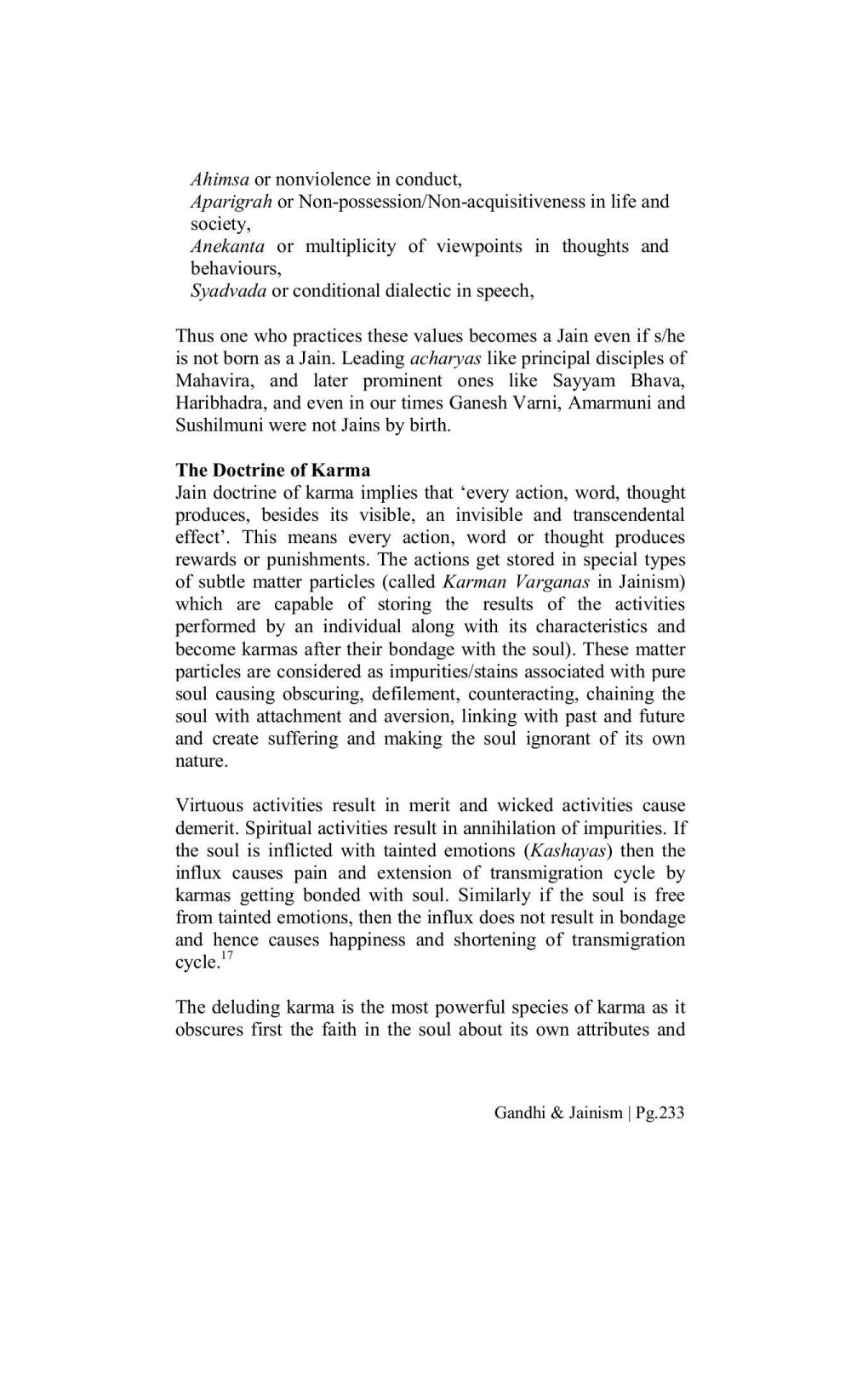________________
Ahimsa or nonviolence in conduct, Aparigrah or Non-possession/Non-acquisitiveness in life and society, Anekanta or multiplicity of viewpoints in thoughts and behaviours, Syadvada or conditional dialectic in speech,
Thus one who practices these values becomes a Jain even if s/he is not born as a Jain. Leading acharyas like principal disciples of Mahavira, and later prominent ones like Sayyam Bhava, Haribhadra, and even in our times Ganesh Varni, Amarmuni and Sushilmuni were not Jains by birth.
The Doctrine of Karma Jain doctrine of karma implies that 'every action, word, thought produces, besides its visible, an invisible and transcendental effect. This means every action, word or thought produces rewards or punishments. The actions get stored in special types of subtle matter particles (called Karman Varganas in Jainism) which are capable of storing the results of the activities performed by an individual along with its characteristics and become karmas after their bondage with the soul). These matter particles are considered as impurities/stains associated with pure soul causing obscuring, defilement, counteracting, chaining the soul with attachment and aversion, linking with past and future and create suffering and making the soul ignorant of its own nature.
Virtuous activities result in merit and wicked activities cause demerit. Spiritual activities result in annihilation of impurities. If the soul is inflicted with tainted emotions (Kashayas) then the influx causes pain and extension of transmigration cycle by karmas getting bonded with soul. Similarly if the soul is free from tainted emotions, then the influx does not result in bondage and hence causes happiness and shortening of transmigration
cycle.17
The deluding karma is the most powerful species of karma as it obscures first the faith in the soul about its own attributes and
Gandhi & Jainism
Pg.233




